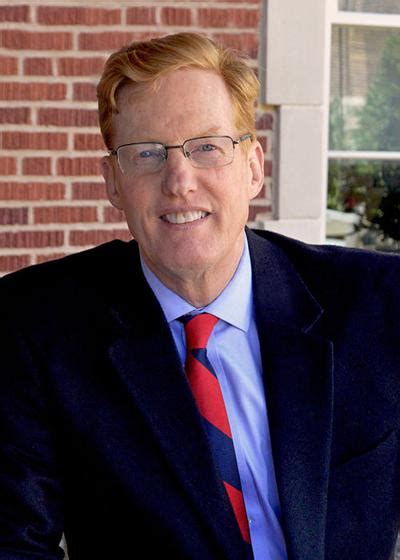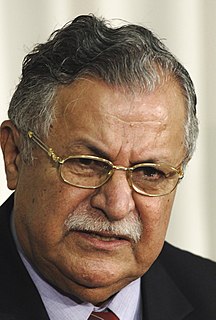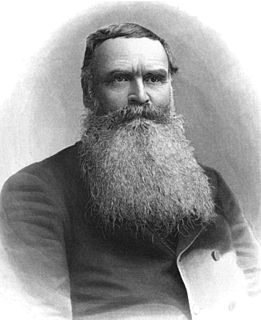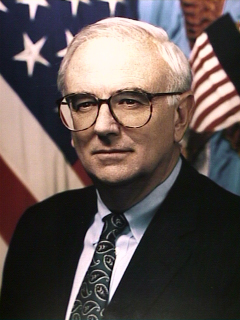A Quote by Timothy Noah
Whenever a Kurd wants to measure the depth of some foreign leader's commitment to Kurdish autonomy, he listens for one particular word. That word is 'federal.' Anyone who will say he favors Kurdish federalism can be counted a friend of the Kurds.
Related Quotes
I do believe that the Kurds are in a difficult situation. They do have some American support. How consistent that will be is unclear. But they have built up a strong military, and they have begun to build the institutions of an autonomous life in Northern Syria. Turkey's enmity towards the Kurds and their desire to make sure there is no independent Kurdish state or even really autonomous enclave is going to push the Kurds into Bashar Assad's hands over time.
The problem of ISIS is not recent. Ever since the Second World War, people in this region have been, and are today, living under brutal dictatorships governed by nationalistic fervor. As for the Kurdish question: nobody from the Arab world is serious about fighting ISIS. It's only the Kurdish people who are standing firm against ISIS. And I think Europe, the United States, and most other democratic countries of the world are beginning to look at the Kurds in another way. The Kurds are really becoming their partners in the region.
The Kurds know that they won't achieve their own state by force of arms but through international recognition. And they have certainly heard what the German foreign minister said in connection with the arms deliveries: There is no Kurdish state. But that shouldn't prevent the Kurds from continuing to develop their own institutions. Still, the best thing for them would be to remain a part of Iraq, but in return we must treat them with respect - their nationality, their language and their culture.
By very conservative estimates, Turkish repression of Kurds in the 1990s falls in the category of Kosovo. It peaked in the early 1990s; one index is the flight of more than a million Kurds from the countryside to the unofficial Kurdish capital, Diyarbakir, from 1990 to 1994, as the Turkish army was devastating the countryside.
Most Turkish Kurds want a quiet life and improved economic conditions. But the Kurdish regions of Turkey are mountainous; they're ill-favored climatically; they're poor; and there's a limit to what the government can do there without wasting a lot of resources. Developing the south east may mean decamping a large part of its population. But the thing that will improve the lot of the Kurds more than anything else will be the stabilization of Iraq in the first place, because then the Turkish southeast stops being a dead end. It can become a bridge, with trade flowing in both directions.
We've seen in Europe after the recent terrorist attacks a certain retrogression in human rights. It depends on how threatened the Turks feel. For example, Turkey became much more tolerant towards Kurdish nationalists when the killing of Turkish soldiers stopped in southeastern Turkey and body bags stopped arriving. Now, since June there's been a revival of Kurdish attacks on Turkish troops - something like 150 people have been killed by terrorists supplied from and operating out of bases in northern Iraq. So Turks are feeling much less tolerant of Kurdish nationalism.
To anyone who has followed the practice of using profanity or vulgarity and would like to correct the habit, could I offer this suggestion? First, make the commitment to erase such words from your vocabulary. Next, if you slip and say a swear word or a substitute word, mentally reconstruct the sentence without the vulgarity or substitute word and repeat the new sentence aloud. Eventually you will develop a non-vulgar speech habit.
Kurds are going to have to strike a bargain with Bashar Assad that will keep them in the Syrian state and under some kind of Syrian authority, so that they can have the protection of international legitimacy and the Syrian army against the Turks. How they can bargain with Assad is unclear. What kind of negotiations they can come to, unclear. We will see whether they get something like the Kurds in Iraq, which is a large measure of autonomy, or something less than that. That will be one of the big negotiations to come out of this process.
Tayyip Erdogan wants to go beyond George W. Bush by making critical journalism and critics in the academy illegal. What will be the difference between him and a military government? Very little. I read his remarks on the effectiveness of Adolf Hitler as Chancellor of Germany. Well, yes. But then the AKP would have to ban all other political parties, close down all critical newspapers, burn the books critical of the regime and gas the Kurds to death...the final solution of the Kurdish 'problem.' Somehow I don't think he is about to do that.





























